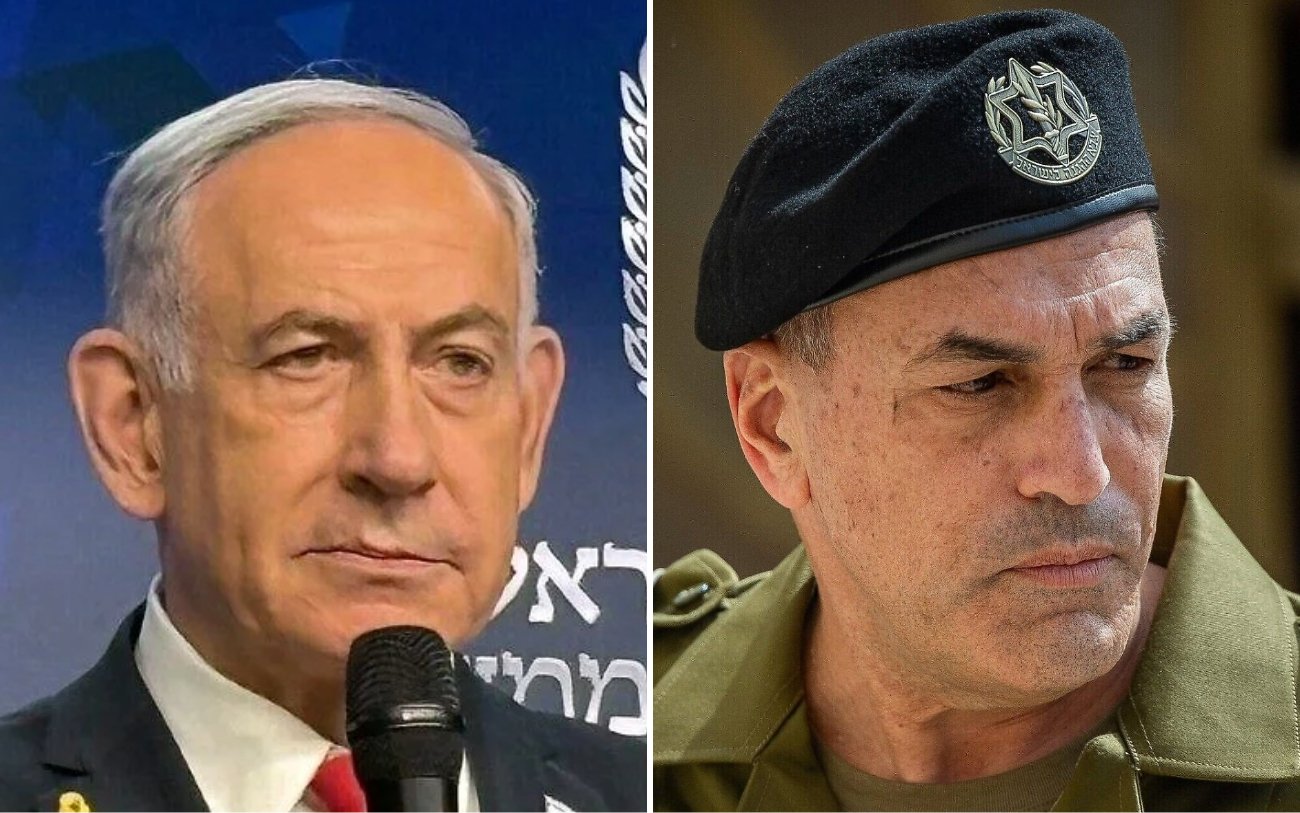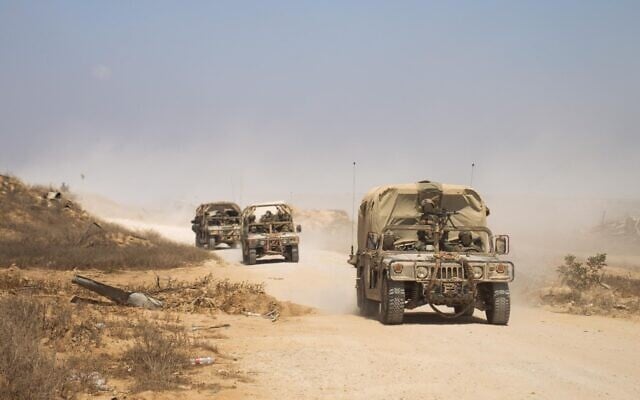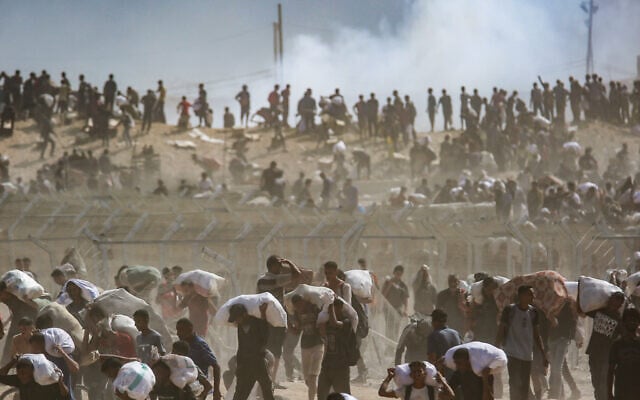



Prime Minister Benjamin Netanyahu and Israel Defense Forces Chief of Staff Eyal Zamir reportedly clashed over the government’s incipient plan to fully occupy the Gaza Strip, with Zamir arguing that the decision constitutes a “trap” for the IDF.
The two men also tussled, according to Hebrew media reports, over a post on X by the prime minister’s son, Yair Netanyahu, who does not hold a government position. The younger Netanyahu lashed out at Zamir and suggested that he was behind a “rebellion and attempted military coup that is fit for a banana republic in Central America in the 70s.”
Zamir objected to that accusation, saying in the meeting, according to the Kan public broadcaster, “How does that look? Why are you attacking me? Why are you speaking against me in the middle of a war?”
Netanyahu reportedly responded, “Don’t threaten to quit in the media. I can’t accept that every time you threaten that if we don’t accept your plans, you’ll leave. My son is 33, he’s a grown man.”
Zamir has repeatedly clashed with the cabinet, and sources in the Prime Minister’s Office have suggested that if he objects to the plan to occupy Gaza, he can resign.
The IDF chief also reportedly said during Tuesday’s deliberations that full occupation would endanger the 50 hostages held by terror groups in Gaza, at least 20 of whom are thought to be alive, and would further exhaust the army.
The argument was the latest in a series of disagreements between the cabinet and IDF brass. It reportedly took place during a three-hour meeting of a limited group of ministers, ahead of a cabinet vote to approve the occupation plan. Netanyahu has reportedly decided to move forward with occupation, a longstanding demand of his far-right coalition partners, as negotiations with Hamas hit an impasse in recent weeks.
“You’re going to create a trap in Gaza,” Zamir told Netanyahu, according to the Kan public broadcaster. Channel 12 quoted Zamir as saying that occupation “will significantly endanger the lives of the hostages and cause the erosion of the army.”
Zamir, according to both outlets, is recommending that, rather than fully conquer the strip, the IDF encircle Gaza City and possibly other population centers, then use those positions to launch attacks. The Walla news site reported that the IDF chief is suggesting a gradual approach.
Netanyahu reportedly responded by telling Zamir to prepare plans for the occupation of the Strip to present to the cabinet. Kan reported that when Zamir said he had already presented them, the prime minister responded, “Make the improvements and present it.”
In a likely reference to the pushback from Zamir, Netanyahu’s office said in a statement after the meeting, “The IDF is prepared to implement any decision made by the security cabinet,” which was expected to convene Thursday to approve the occupation plans.
The IDF currently holds control over approximately 75 percent of the Gaza Strip, but under the new plan, the military would be expected to occupy the remaining territory as well — bringing the entire enclave under Israeli control.
It is unclear what such a move would mean for the Strip’s millions of civilians and for humanitarian groups operating in the enclave.
The war in Gaza began October 7, 2023, when thousands of Hamas-led terrorists invaded Israel, killing some 1,200 people and taking 251 hostages.
Twenty hostages are still believed to be alive in captivity, while twenty-eight have been confirmed dead, and Israel has expressed grave concern about two more. The figures include the body of a soldier killed in 2014.
Hamas released 30 hostages — 20 Israeli civilians, five soldiers, and five Thai nationals — and the bodies of eight slain Israeli captives during a ceasefire between January and March, and one additional hostage, a dual American-Israeli citizen, in May as a “gesture” to the United States. The terror group also freed 105 civilians during a weeklong truce in late November 2023, and four hostages were released before that in the early weeks of the war.
In exchange, Israel has freed some 2,000 jailed Palestinian terrorists, security prisoners, and Gazan terror suspects detained during the war.
Eight hostages have been rescued from captivity by troops alive, and the bodies of 49 have also been recovered, including three mistakenly killed by the Israeli military as they tried to escape their captors, and the body of a soldier who was killed in 2014.


